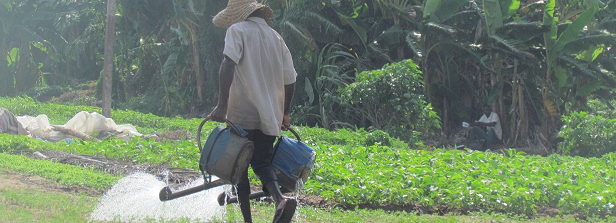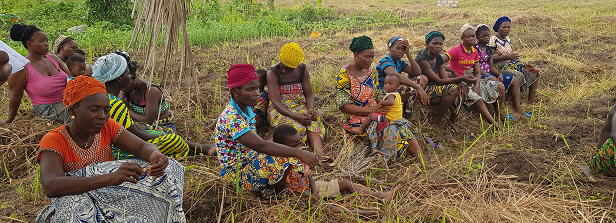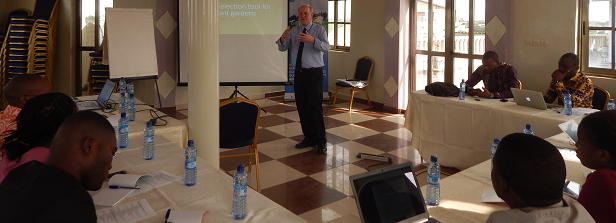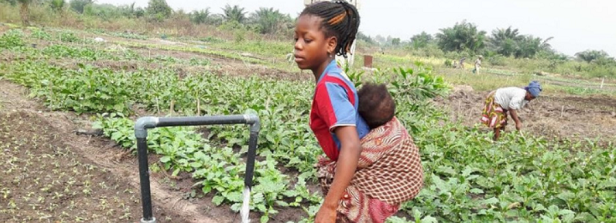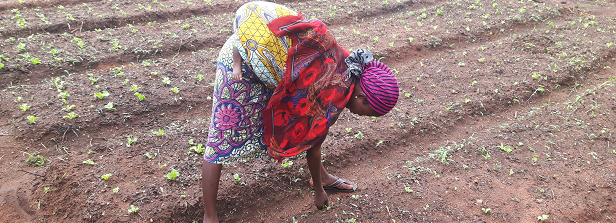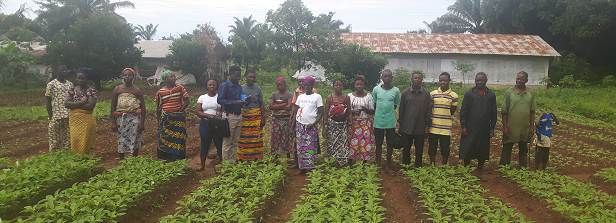Allotment gardens and food security in urban Africa
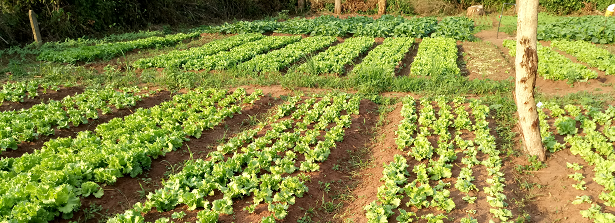
Duration: January 1, 2016 – December 31, 2018
Project information
Allotment gardens can, potentially, deliver healthy foods for the poor in rapidly urbanizing Africa. This research compares the impact of urban gardens on food security using two pilots. A site selection tool indicates optimal locations taking into account that gardens should be safe havens for women, the gardens’ principal custodians.
Aim: Food insecurity of urban poor in rapidly urbanizing Sub-Sahara Africa constitutes a serious Global Environmental Challenge. Benin is a particular case in point; 45 per cent of its population lives in fast growing cities where poorer segments, especially female-headed households, lack access to healthy foods. This project aims to create an integrated framework for allotment garden development, providing urban poor with access to fresh foods and with a safe haven for women, the gardens’ principal custodians, to earn extra income.
Objectives: The project’s general objective is to increase the food security situation of the urban poor, especially that of women and children, by development of allotment gardens in the urban and peri-urban areas of Benin. Allotment gardens provide urban poor with access to fruits, vegetables and marketing opportunities, while providing a safe place for women to gain some extra income. For the realization of the objective the project formulated specific objectives covering planning procedures of allotment gardens, proper institutional settings and advocacy:
- Quantify impact of urbanization on food security of urban poor, especially of women and children;
- Develop a site selection tool for allotment gardens in urban areas;
- Design an organizational form and incentive structure for management of allotment gardens that regulate fair use and safe access for women;
- Implement a pilot of two allotment gardens in urban areas of Benin;
- Integrate project findings into a decision making framework that can be used to upscale the allotment garden initiative;
- Integrate project findings in national policy agendas of Benin to create an enabling environment for expansion of allotment gardens.
Method: The project builds on earlier initiatives to establish allotment gardens for urban poor. It cuts across boundaries of established scientific fields (agronomy, economics, geography) and seeks formal integration of disciplines to address the complexity associated with planning of allotment gardens in urban areas. The project studies academic findings on appropriate institutional settings for allotment garden management but also abides by experience and practical problem-solving of local communities.
A site selection tool is developed to optimize garden location accounting for natural resources, vicinity to markets and safe access for women. Jointly with urban associations a trans-disciplinary study assesses the appropriate organization and incentive structures for successful cooperative garden management. Comparing survey results of two pilots with a baseline study reveals the impact of allotment gardens on the food security of the urban poor.
Country: Benin.
Dutch policy goal: Urbanization and challenges for food and nutrition security.
Progress reports
Year 1: The project creates an integrated framework for allotment garden development in Benin, providing urban poor with access to fresh foods and a safe haven for women, the gardens’ principal custodians. In its first year the project initiated a strong collaboration with local authorities and stakeholders of urban agriculture, and allocated two allotment gardens, one in Abomey-Calavi and one in Porto-Novo. Field preparation is in full swing and two groups of participants will soon receive agricultural training in garden management. Lessons learned from a literature review showed that allotment gardens: positively impact on food security, living conditions and women empowerment, require leadership and targeted strategies for successful organizations, and demand multi-criteria analysis for optimal site allocation. Two surveys were prepared, one to analyse appropriate organization and incentive structures for cooperative garden management, another to monitor changes in food security over time for participants and a control group. A site selection tool is developed that casts high resolution GIS data on biophysical and socio-economic conditions to formalize multi-criteria decision making.

